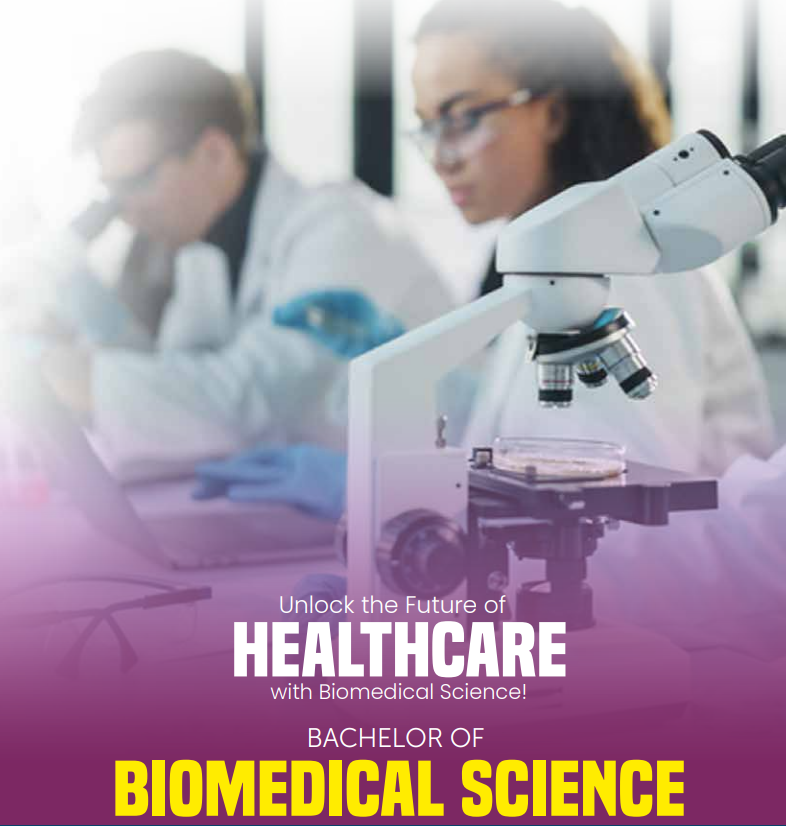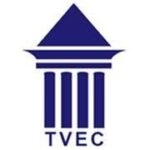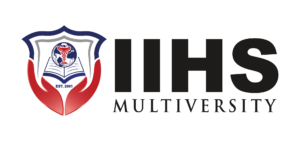Duration
3 Years
Delivery Mode
Full Time
Intakes
September to January
Location
IIHS Multiversity
Mastering the Science of Health

About The Program
This Biomedical Science program provides an in-depth understanding of how the human body functions and how it is influenced by health and disease. It explores the intricate relationship between the body and its environment, helping you apply scientific knowledge to real-world scenarios. The curriculum covers a wide range of core subjects, including biology, chemistry, microbiology, anatomy, and genetics, ensuring you build a comprehensive foundation in the life sciences. These foundational topics pave the way for advanced specialization in fields such as genetics, forensic science, or clinical laboratory science. You’ll gain insight into the science behind disease diagnosis and medical treatments, developing critical skills that are essential in modern healthcare and research settings. By the end of the program, you will be thoroughly equipped with the expertise and practical experience needed to embark on a successful career as a Biomedical Scientist, contributing to advancements in medicine and improving patient outcomes.
Global Opportunities
Upon completion, graduates are well-prepared to pursue a range of fulfilling roles in healthcare settings, including:
- Biomedical Science Technician: Conduct research and laboratory tests to diagnose diseases, analyze samples, and support medical advancements.
- Clinical Laboratory Technician: Work in hospital or private labs, performing tests on patient samples to assist in diagnosis and treatment.
- Research Science Technician: Engage in scientific research, contributing to the development of new treatments, drugs, and medical technologies.
- Forensic Science technician: Analyze biological evidence for criminal investigations, combining biomedical expertise with law enforcement.
- Molecular Biology or Genetic Lab technician: Focus on molecular-level studies, such as genetic analysis or gene therapy research.
- Executive and/or Technician in Quality control: Maintaining and overlooking quality control procedures in a laboratory and ensuring smooth and efficient day-to-day procedures.
- Executive/ Analyst in Business development: Be a major cooperate employee in Biosciences or a related field to assist in the businesses or organizational growth.
Why you should study the Advanced Diploma in Biomedical Sciences
The Advanced Diploma in Biomedical Sciences (ADBMS) is the perfect choice for individuals passionate about exploring the science behind health and disease. This program provides a strong foundation in biomedical sciences, combining theoretical knowledge with hands-on experience to prepare you for a successful career in healthcare or scientific research.
- Comprehensive Learning Experience: Gain an in-depth understanding of how the human body functions and how it is influenced by health, disease, and environmental factors. This program not only equips you with technical expertise but also hones your critical thinking and analytical skills, ensuring you are well-prepared to tackle real-world challenges in biomedical science.
- Extensive Practical Exposure: Approximately 50% of the program involves hands-on clinical placements and laboratory sessions, allowing you to apply your knowledge in real-world settings. You’ll master essential techniques in areas like microbiology, molecular biology, and clinical diagnostics, ensuring you graduate with practical, job-ready skills.
- Pathway to Global Careers: The ADBMS is recognized internationally and provides seamless pathways to complete your bachelor’s degree at renowned universities in the UK, Australia, or Finland. Graduates are well-prepared for healthcare careers across the globe, with opportunities to specialize further in fields such as genetics, forensic science, or clinical laboratory science.
- Accelerated World-Class Qualification: Complete your Advanced Diploma in just three years and gain an internationally recognized qualification that opens doors to a wide range of career and educational opportunities worldwide.
- Award-Winning Learning System: Benefit from IIHS’s cutting-edge online learning platform, which combines flexibility with high-quality education, enabling you to balance your studies with other commitments while achieving academic excellence.
- Research and Presentation Opportunities: Engage in innovative research projects during your studies and showcase your findings at prestigious local and international forums. These experiences enhance your understanding of biomedical sciences and broaden your professional network.
- State-of-the-Art Facilities: Learn in IIHS’s modern Biomedical Sciences Laboratory, equipped with advanced technology and tools to support hands-on practical learning. This environment ensures you gain real-world experience in a simulated setting, building your confidence and technical expertise.
Course Module
Modules
| Module Code | Module Name |
| ENGL 101 | General English |
| ENGL 102 | College English |
| INFH 101 | Infection Control Policies and Procedures in Healthcare |
| WHSP 101 | Work Health and Safety process in Health care |
| BMSC 102 | Cell Biology |
| BIOL 204 | Human Anatomy I |
| BIOL 206 | Human Anatomy II |
| BIOL 205 | Physiology I |
| BIOL 207 | Physiology II |
| BIOL 101 | Medical Terminology |
| BMSC 104 | Chemistry for Biological Sciences |
| BMSC 105 | Introduction to Biomedical Science |
| MICR 134 | Introductory Microbiology |
| BMSC 100 | Laboratory Techniques and Management |
| BIOL 102 | Pharmacology |
| BMSC 111 | Immunology |
| BMSC 119 | Bioinformatics |
| BMSC 120 | Clinical Biochemistry |
| FDNT 235 | Nutrition |
| CHEM 103 | Biochemistry and Metabolism |
| BIOL 208 | Pathophysiology |
| BMSC 113 | Medical Microbiology |
| BMSC 107 | Molecular Biology and Genetics |
| BMSC 109 | Histology and Haematology |
| PSYCH 234 | Human Development |
| BMSC 115 | Quality Assurance and Quality Control |
| BMSC 114 | Epidemiology |
| BMSC 101 | Practicum I |
| BMSC 103 | Practicum II |
| BMSC 106 | Practicum III |
| BMSC 108 | Practicum IV |
| BMSC 110 | Practicum V |
| BMSC 112 | Practicum VI |
| BMSC 116 | Internship in Industry/Placement |
| BMSC 117 | Internship in Industry/Placement II |
| BMSC 118 | Internship in Industry/Placement III |
| ENGL 103 | Professional English and Personality Development |
| EVBP 101 | Health Research Methodologies |
| EVBN 103 | Research Project Work |
| CPTR 101 | Hospital Information Systems |
| SOCI 121 | Introductory Sociology |
| LWET 101 | Legal and ethical environment in Healthcare |
| EVBP 102 | Critical Thinking and Reflective Practice in Healthcare |
| WRCL 101 | Working with Culturally Diverse Client and Co-workers |
| EWEN 101 | Managing an Effective work environment |
| CCUR 101 | Co-Curricular Activities Programme I |
| CCUR 102 | Co-Curricular Activities Programme II |
Program Recognition

Pathway to Further Studies
Entry Requirements
- Ordinary Level (Local or London) – 5 passes including English and Science, C pass is required for English Language or equivalent (ex: pre-foundation- TVEC registered).
- Advanced Level 3 passes in any stream or equivalent (ex: foundation- TVEC registered).
- IIHS Foundation in Biological Sciences or other recognized Foundation Qualification Equivalent to SLQF Level 3 or NVQF Level 5.
Contact:
Location
info@iihsciences.edu.lk
- No. 312/15, St. Joseph Mw, Kerawalapitiya Rd, Wattala
